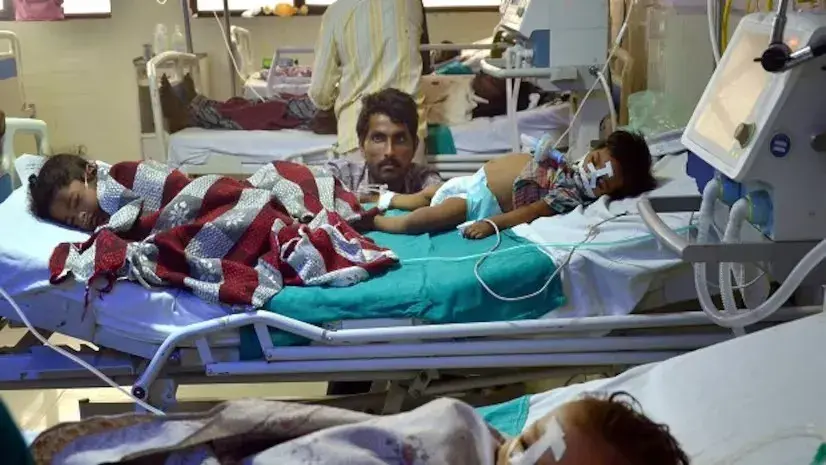Six Children Die of Suspected Chandipura Virus in Gujarat Since July 10
Six children have died due to suspected Chandipura virus in Gujarat since July 10, with the total number of cases of the infection rising to 12, state Health Minister Rushikesh Patel has said. “Samples of the 12 patients have been sent to Pune’s National Institute of Virology (NIV) for confirmation,” he said on Monday. Chandipura virus causes fever, with symptoms similar to flu, and acute encephalitis (inflammation of the brain). It is transmitted by vectors like mosquitoes, ticks, and sand flies. The pathogen is a member of the Vesiculovirus genus of the family Rhabdoviridae. Patel said that four of the 12 patients were from Sabarkantha district, three from Aravalli, one each from Mahisagar and Kheda in Gujarat, while two patients were from Rajasthan and one from Madhya Pradesh. They received treatment in Gujarat. “Six deaths due to suspected Chandipura virus have been reported in the state, but only after results of the samples it will be clear whether they were caused by the Chandipura virus,” he said in a statement. “Five out of six deaths have been reported from the civil hospital in Himatnagar in Sabarkantha district. All 12 samples, including eight of patients at the civil hospital in Sabarkantha, have been sent to Pune’s National Institute of Virology (NIV) for confirmation,” Patel said. Paediatricians at the Himatnagar civil hospital had suspected Chandipura virus as the cause of death of four children on July 10 and sent their samples to NIV for confirmation. Later, four more children at the hospital showed similar symptoms. “Chandipura virus is not contagious. However, intensive surveillance has been undertaken in the affected areas. We have screened 18,646 persons in 4,487 houses. The health department is working round-the-clock to prevent the spread of the disease,” Patel said.


